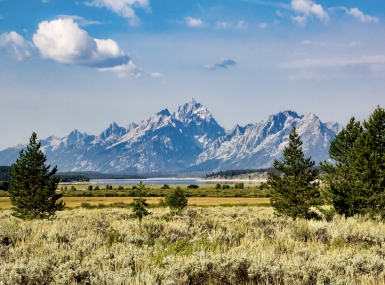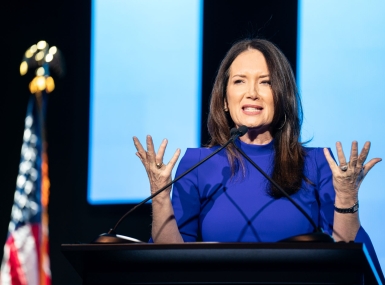Most foreign-owned ag land remains in friendly hands

Key Takeaways
Despite cycles of concern about foreign ownership, less than 4% of U.S. private agricultural land is owned by foreign entities, and only 12 states have enacted laws limiting foreign ownership. And despite that fervor, state legislatures are not easy sells on new restrictions, and no state has banned foreign ownership outright.
Harrison Pittman, director of the National Agricultural Law Center, noted that concern about foreign ownership of land in the United States has been present for nearly 250 years — it comes up twice in the Declaration of Independence and has followed the political context of the times, with concern shifting toward various geopolitical rivals, with recent policy proposals targeting China, Iran, North Korea and Russia.
Agriculture and Rural Affairs Steering Committee
July 12
“In the 1970s, there was a concern that Middle Eastern countries, wealthy oil-producing countries, could purchase enough farmland to effectively control the food supply, quite similar to arguments that are made at times with respect to China today,” he said.
But he said transparency regarding ownership is an area for development on the federal side.
“When we get a farm bill …this is destined to be a part of it,” he said, building on the reporting requirements established by the Agricultural Foreign Investment Disclosure Act of 1978. Roughly 12 states have separate reporting requirements.
The majority of foreign ownership of U.S. land is in the Southeast and the West, but the majority of laws are now focused on the Midwest. Half of foreign ownership is forested land, and Canada owns most of that. Just over 28% is cropland and 21% is pastureland. Russia, by comparison, owns roughly 100 acres total in the United States, and China has a 0.9% interest in total U.S. land.
Pittman said that further restrictions on foreign ownership are challenged by political considerations.
“There’s a lot of competition ideologically between ownership, private ownership, property rights to other legitimate concerns over national security… these things kind of bounce into each other,” he said. “It gets really difficult both to find political consensus and then to keep political consensus.”
The state laws passed in 2023 have very specific restrictions, including banning governments and political parties of China, Iran, North Korea and Russia from buying land in Alabama; individuals, entities and governments from those countries from buying Florida land and prohibiting foreign parties from buying Arkansas land. The Arkansas law, Pittman said, ended up streamlining the process by eliminating the state-level reporting requirement.
Foreign ownership of private agricultural land as of Dec. 31, 2022:
43.4 million acres
17.3 million acres have been purchased between 2012-2022
Countries’ share of U.S. agricultural land
Canada (32%)
Netherlands (12%)
Italy and United Kingdom (6% each)
Germany (5%)
States with the most foreign land investments
Texas (5.4 million acres)
Maine (3.49 million acres)
Colorado (2.47 million acres)
Alabama (2.3 million acres)
Michigan (1.84 million acres)
Related News

Congress Passes Landmark Outdoor Recreation Package
Lawmakers passed the bipartisan EXPLORE Act (H.R.6492) on December 19 to boost outdoor recreation opportunities on public lands for county residents and visitors and aid gateway communities
Sonoma County unites to fight ag-focused ballot measure
When a ballot measure threatened a wide swath of agricultural operations in Sonoma County, Calif., stakeholders rallied around the chance to show residents what farms mean to their community.

